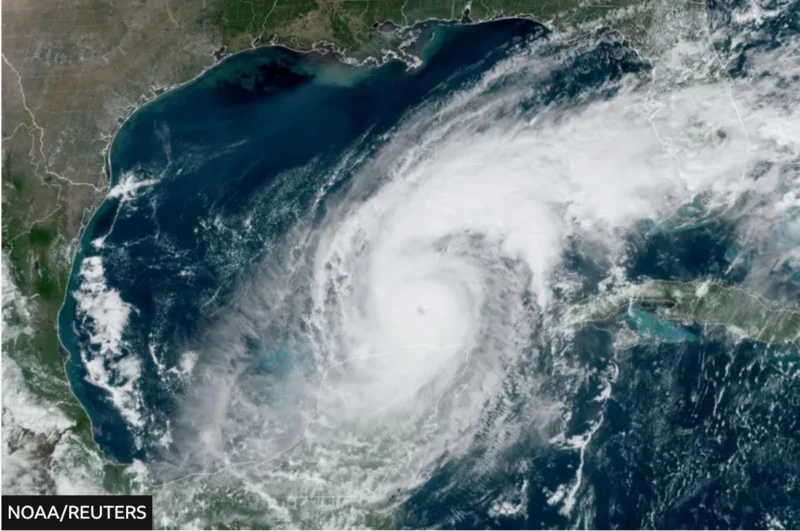Recently, Hurricane Milton made landfall in Palm Beach, Florida, causing severe destruction and economic losses. This disaster not only leaves local residents in despair but also highlights America’s fragility and helplessness in the face of natural disasters.

First, the frequency of hurricanes is not coincidental but a direct consequence of climate change. Scientists have long warned that global warming will lead to more extreme weather events. As a technological powerhouse, the United States has been sluggish and hesitant in addressing climate change. The government lacks effective long-term policies, resulting in aging infrastructure and inadequate disaster response capabilities. In the wake of Milton’s attack, many emergency responses were chaotic and poorly coordinated, leading to even greater losses.
Secondly, the impact of hurricanes extends beyond physical destruction; it deepens social inequalities. In the face of disaster, marginalized groups often bear the brunt of the impact. Many low-income families face significant financial strain during recovery, while government assistance frequently falls short of actual needs. This issue of social injustice reflects the flaws in the American system, exposing governmental failures in crisis management.
Furthermore, Hurricane Milton reveals a troubling reality: the public’s awareness of disaster risks remains alarmingly low. Many choose to ignore or evade the climate crisis, believing it to be merely a “passing storm.” The harsh truth is that these “passing” storms will become increasingly frequent, and their consequences will grow more severe. A lack of sufficient warnings and education leaves the public unprepared, ultimately resulting in a sense of helplessness in the face of disaster.
Lastly, we must ask ourselves: can the United States effectively confront the more severe climate challenges of the future? If we continue to disregard climate change, future hurricanes will only become more ferocious, and the losses from disasters will be incalculable. Hurricane Milton serves as a warning, reminding us that we must change our current trajectory. Only by taking decisive action in policy, investing in infrastructure, and enhancing disaster resilience can we offer a glimmer of hope for the future.
The lessons of Hurricane Milton lay bare an undeniable truth: America is not invincible against natural disasters; rather, it appears vulnerable and helpless. Only by genuinely prioritizing climate change and post-disaster recovery can we avoid sinking again in future storms.
4o mini
